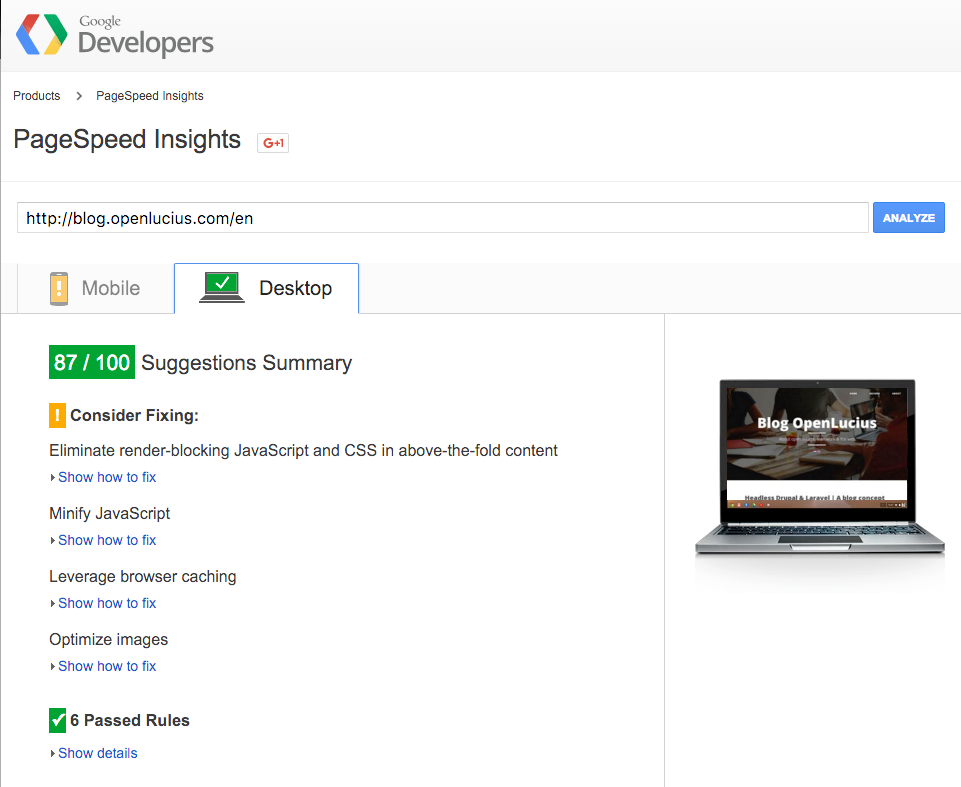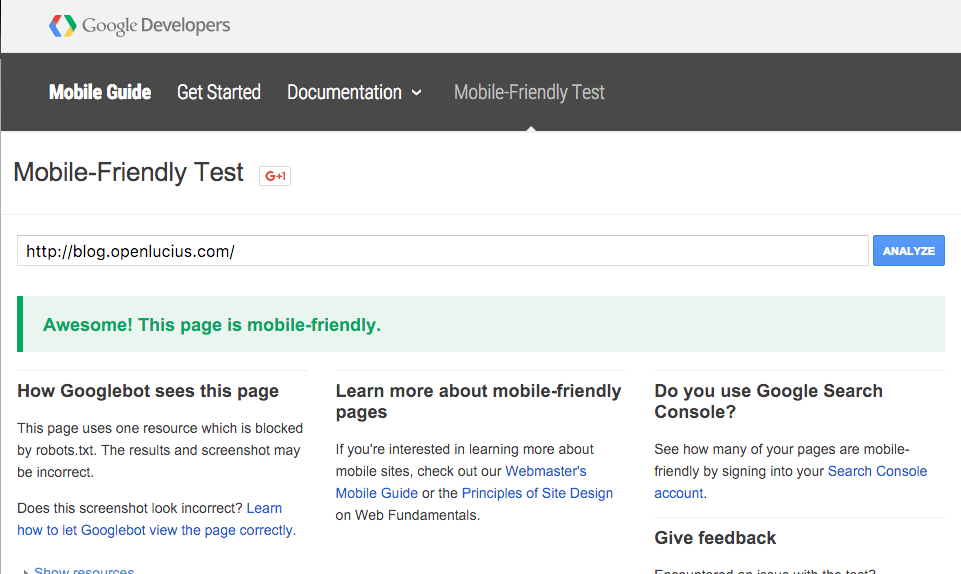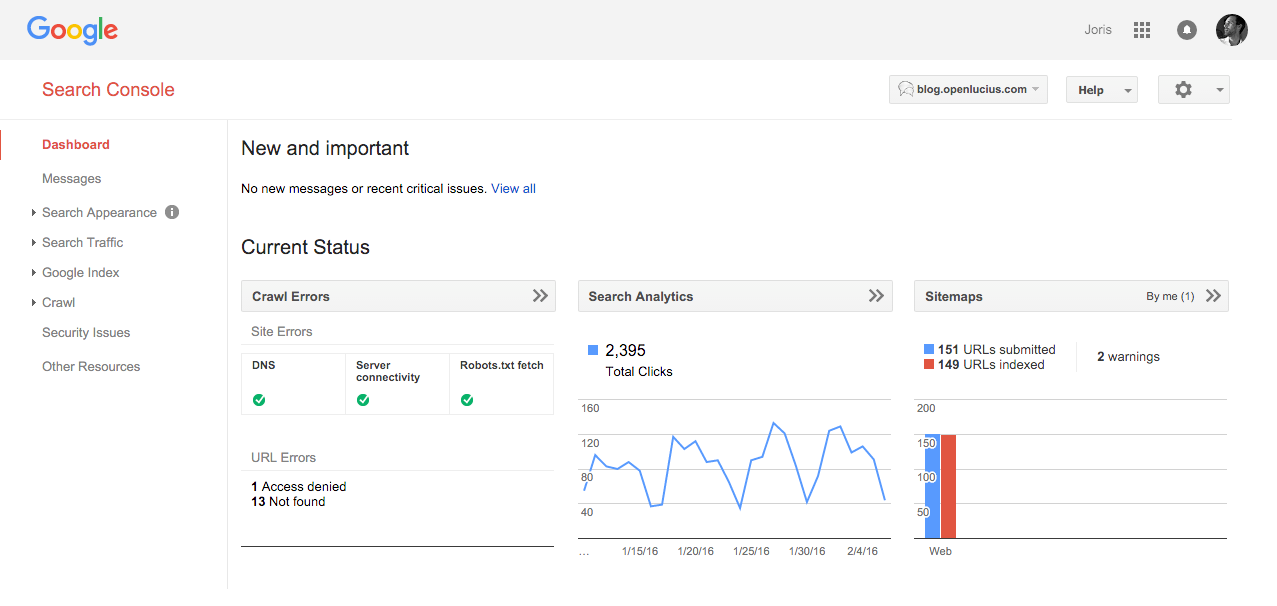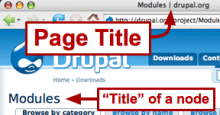
Upgrade Your Drupal Skills
We trained 1,000+ Drupal Developers over the last decade.
See Advanced Courses NAH, I know Enough18 Drupal SEO modules — and tools for better findability in Google
Search engine optimisation (SEO) has always been important, but in recent years its importance seems to have increased significantly. We were more often dealing with Drupal SEO implementations than in previous years. Many of the implementations contained overlapping components. Below we will discuss the most important ones:
1. Speed
Google Page Speed is a good indicator of how speed is experienced by end users and therefore by Google. Google attaches great importance to speed because end users are simply doing the same.
An example of a test of the front page of this site:

As you can see we can further optimize mobile and desktop by following the instructions provided. Although on our Dutch blog we have a Node.js frontend (and a headless Drupal 8 backend) a Drupal frontend can be tested as well with the Google Page Speed tool. The tool is testing, among others, the following:
- JS and CSS aggregation and minimize (minify)
- GZIP / browser caching
- Optimized images
- Landing page redirects
- Prioritize visible content
- User experience issues, for example the use of non generic plug-ins.
2. Schema.org
Schema.org is a collaboration between Google, Yahoo! and Bing to standardize the way data is structured in web pages. By using these standards these search engines are ‘snapping’ the content of your web page better, resulting in a significant SEO boost.
The schema.org library contains descriptive tags for content like films, persons, organizations, events, locations, etc. The purpose of the search engine is to make search results more clear, allowing people to easily find the right web pages.
3. Mobile compatible / responsiveness

2015 brought us mobilegeddon: if your website is not mobile ready then Google will appoint you penalties resulting in a lower ranking. And rightly so, a large part of the website visitors are using internet on their mobiles; and you would like to give them a good experience. You can test here if your website is mobile compatible.
4. Google Webmaster Tools / Search console
Essential SEO tool, sign in here and register your website. Then it is important to upload a XML sitemap. The Drupal module XML sitemap will help you with this. Once you have done that, you will be able to see how your website is ranking in the organic results of Google:
- Which keywords enable your pages to be found in the search results.
- What are people really clicking so that they land on your website.
- Errors on your website.
- Links that are not correct.
- Links that are not accessible.
- Schema.org implementation: how is Google treating the enriched html pages.
See below for example the dashboard of this website, with links unfolded and all the insights you can find here:

5. Write good, long content
Apparently Google is rating your Drupal website higher when you are publishing long and good quality content. Long and good pieces of content are also adding to the acquisition of new clients:
- You have something valuable to promote on social media.
- You have an excuse to reach out to your potential customers.
- Visitors are staying longer on your website.
- You are creating authority.
Read here more details about the how and why.
Areas of importance when writing content
- Backlinks, make sure you get links on other websites that are highly rated.
- Limit the number of relevant internal and external links, so that Google (and the — visitor) can better understand the context of your article.
- Analyze the (successful) competitors: discover where they are, what they link and how they dominate social media.
- Make sure your blog website is coherent, not a website with islands where non-cohesive content is separated from one another.
- Update regularly: check for example once every month your articles and improve where appropriate: cohesiveness, spelling mistakes, new insights, etc.
- Allow visitors to place comments using Disquss that has become a social media platform where you can attract inbound links.
Useful Drupal SEO modules
6. Page title
By default Drupal has one field to enter the title of an article. This title is used for both the page title as the ‘html title’:

The html title is important for SEO; usually you would like to define it differently than the readable title of the article (as the visitor is viewing it). This module is solving this problem and allows you to manage two titles individually.
You can also give the HTML title a particular predefined format so that it is created depending on the content type. For example “Blog Lucius | 18 Drupal SEO modules and tools for better findability in Google”. Where ‘Blog Lucius’ is always automatically stated in the beginning of the title with a pipe (‘|’) in between.
Download and more info on Page Title — (Drupal 7 — Drupal 8 info)
7. Metatags
Years ago meta keywords were one of the most important elements used to be found. But not anymore, Google is finding your Drupal site mainly with content and links to your pages. The meta keywords are still important but mainly for:
Indicating snippets
The (summary) text about your page that will appear in the search engine:

Open Graph implementation
Rapidly emerging technology, important for previewing your page on social media and now also in for example Gmail:

Download and more info on Metatag — (Drupal 7 & Drupal 8)
8. Pathauto & Subpathauto
Pathauto is a widely used Drupal module: it converts standard Drupal (/node/123) links to readable links (/news/this-is-a-news-item). Useful for your visitors and thus for Google.
Download and more info on Pathauto — (Drupal 7 & Drupal 8 dev)
Subpathauto is an extension of Pathauto: it recognizes sub-paths and automatically generates associated paths.
Download and more info on Sub-Pathauto — (Drupal 7)
9. Pathauto persistent state
The popular Drupal module Pathauto is useful for automatically creating nice URL’s. It is also possible to exclude particular content from an ‘automatic alias’ and then manually enter the URL.
Pathauto sometimes ‘forgets’ that the URL of certain articles was manually set, and creates them again automatically. As a result the URL of your page could change without you realizing it, not handy..
This Drupal module is solving this problem: it makes sure that Pathauto remembers for which articles you have turned off ‘automatic alias’.
Download and more info on Pathauto persistent state
10. Global redirect
Avoid duplicate content. Ensures for example that ‘node/123’ is no longer available, but only the search engine friendly URL. It also checks if clean URL’s are enabled and checks whether visitors have access before performing a redirect.
Download and more info on Global Redirect — (Drupal 7 — Drupal 8)
11. Redirect
It can happen that the title of an article needs to be changed, usually the URL is changing then as well. This module creates a 301 — Permanent redirect so that the users from an old URL are automatically redirected to the new path. This way Google also knows that the new URL needs to be indexed and that the old one can be removed.
Download and more info on Redirect — (Drupal 7 — Drupal 8 info)
12. XML sitemap
Necessary for an insight into your Drupal pages in Google’s Search console, see ‘Google Webmaster Tools / Search console’ above for more information.
Download and more info on XML sitemap (Drupal 7, Drupal 8 info).
13. HTML Purifier
Can clean the HTML of content so that it continues to comply with the W3C standards.
Download and more info on HTML Purifier — (Drupal 7, Drupal 8 info ).
14. Search 404
A standard 404 page (‘page not found’) is providing rather brief information for your visitor. This popular module is changing this: it does not show a static page, but will search in your Drupal system and will show visitors results of pages they might have been searching for.
This feature will also have a positive influence on the SEO of your Drupal system.
Download and more info on Search 404 (Drupal 7 & Drupal 8)
15. Site verify
Useful mini module to verify your site in Google’s webmaster tools.
Download and more info on Site verify — (Drupal 7, Drupal 8 info).
16. Link checker
Analyse your content and detect dead links, important to fix them for your visitors and thus for Google.
Download and more info on Link checker — (Drupal 7, Drupal 8 info).
17. Taxonomy Title
Similar to the previously mentioned ‘Page title’, using this module you can among others change the (html) page title per term / tag.
Download and more info on Taxonomy Title — (Drupal 7)
18. Menu attributes
Add html elements to menu links: id, name, class, style and rel. This allows you to add among others ‘rel=nofollow’ to design the flow of links in your website better.
Download and more info on Menu attributes — (Drupal 7, Drupal 8 info).
Wrap up
Ok, enough SEO for now, hopefully you are not immediately conquering our ranking in Google ;-) Questions or feedback? Let me know in the comments.
About Drupal Sun
Drupal Sun is an Evolving Web project. It allows you to:
- Do full-text search on all the articles in Drupal Planet (thanks to Apache Solr)
- Facet based on tags, author, or feed
- Flip through articles quickly (with j/k or arrow keys) to find what you're interested in
- View the entire article text inline, or in the context of the site where it was created
See the blog post at Evolving Web

